The Death of 'Happily Ever After': Why Millennials Are Redefining Marriage
Shreya | Feb 22, 2025, 22:13 IST

The idea of "happily ever after" has long been a cornerstone of marriage and romantic relationships in popular culture. However, Millennials are approaching marriage with a new perspective, prioritizing personal fulfillment, equality, and emotional growth over the traditional notions of permanence and perfection. This article examines how Millennials are reshaping the concept of marriage, why they're challenging old ideals, and what this means for the future of romantic relationships.
For centuries, "happily ever after" has been a promise associated with marriage. From fairy tales to Bollywood romances, the ideal of an eternal, blissful union has invaded every corner of society. But there seems to be a shift, as Millennials (those born roughly between 1981 and 1996) are no longer buying into this traditional narrative. As this generation enters adulthood, marriage and relationships are undergoing a dramatic shift, with a growing emphasis on personal fulfillment, emotional connection, and mutual growth rather than the pursuit of perfection. So, what is driving this groundbreaking change? And how are Millennials redefining what it means to be married?
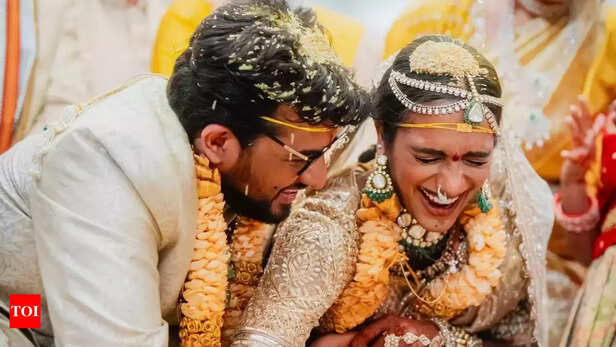
The narrative of "happily ever after" has been a central theme in cultural depictions of love and marriage. For generations, this ideal created a fixed blueprint for what love and relationships should look like - romantic, enduring, and unwavering. For Millennials, however, the promise of a fairy tale ending feels outdated, unrealistic, and even limiting. Many Millennials are rethinking long-held norms about marriage, such as the belief that love is a one-size-fits-all, permanent institution that should never change.
A key reason Millennials are moving away from the "happily ever after" ideal is the evolving view of personal growth and individualism. For this generation, life is about continual self-discovery, change, and adaptation. Millennials place a high value on developing their own identities, careers, and aspirations. Marriage, therefore, is not viewed as an endpoint but as a partnership that should allow space for both individuals to flourish and grow.
Moreover, Millennials have witnessed the divorce rates of previous generations and are often wary of entering into a marriage that feels burdening. The rise in divorces has created a generation that is more cautious about making long-term commitments, leading them to question if "forever" is even realistic. Millennials are more likely to believe that marriages can evolve, and they are looking for relationships that are flexible and adaptable to the complexities of modern life.
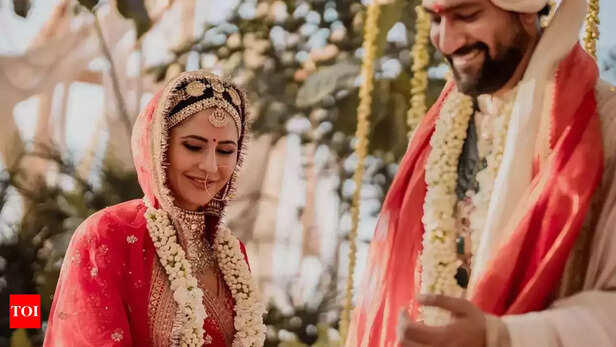
Historically, marriage was primarily about societal expectations, binding families, ensuring inheritance, and producing children. In recent decades, however, the purpose of marriage has shifted toward emotional fulfillment and personal companionship. Millennials continue this evolution by emphasizing mutual respect, partnership, and emotional connection above traditional roles or expectations.
For Millennials, marriage is no longer a "destination" but a journey that reflects the nuances of their individual lives. In place of the fairy tale ending, Millennials are seeking relationships that bring out the best in each person, not necessarily the perfect union. They are less likely to see marriage as an idealized institution that brings eternal happiness; instead, they recognize the complexities of relationships and approach them with an open mind and a more realistic outlook.
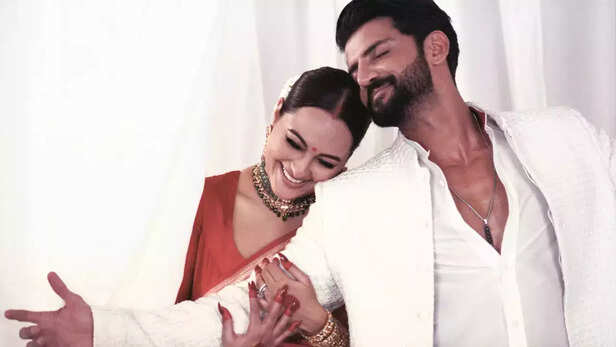
Alongside the changing views on marriage, Millennials are also exploring non-traditional forms of relationships. These include cohabitation without marriage, open marriages, polyamory, and other unconventional arrangements. The idea of "till death do us part" no longer seems like the only valid model for love and connection. Millennials tend to embrace diverse relationship structures based on individual preferences and needs, rejecting the notion that marriage is the ultimate marker of success.
In addition to this, Millennials are increasingly advocating for equality in relationships. Traditional gender roles in marriage are being replaced with shared responsibilities and mutual respect. Women, in particular, have greater autonomy, career opportunities, and financial independence than previous generations, which has contributed to the rethinking of traditional marriage dynamics.
Furthermore, Millennial marriages are often viewed less as a "contract" and more as a dynamic partnership where communication, flexibility, and compromise are central. The goal isn't to fulfill societal expectations but to create a partnership that works for both individuals, irrespective of outside pressures or norms.
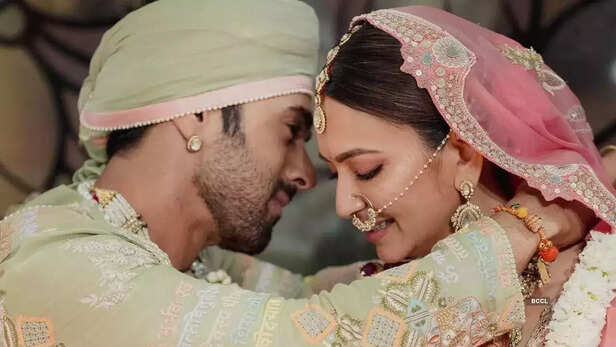
In the past, many couples were content to remain in marriages out of obligation or familiarity, even if the relationship no longer satisfied them emotionally or intellectually. Millennials, however, are determined to avoid the trap of staying in relationships that feel stagnant or unfulfilling.
This mindset is leading to an increasing acceptance of divorce or separation as a natural outcome when relationships no longer serve both individuals’ growth and happiness. Far from fearing divorce, Millennials are more likely to see it as an opportunity for reinvention and healing, rather than a failure or moral defeat.
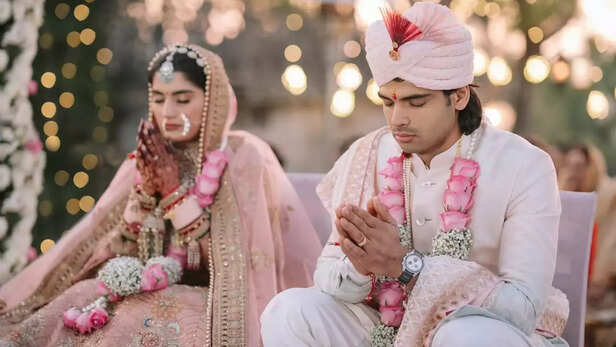
While Millennials may be moving away from the traditional model of marriage, this does not mean they are averse to commitment. On the contrary, Millennials value meaningful and committed relationships but are less willing to conform to outdated standards. Rather than placing the emphasis on a lifetime "contract," they view commitment as a living, breathing element that adapts as life circumstances change.
The growth of digital platforms for dating and relationships has also played a significant role in this shift. The constant access to potential partners, the ability to explore various types of relationships, and the willingness to challenge conventions have influenced how Millennials perceive the long-term commitment of marriage. Relationships no longer require the rigid structure they once did, and Millennials are embracing this newfound flexibility.
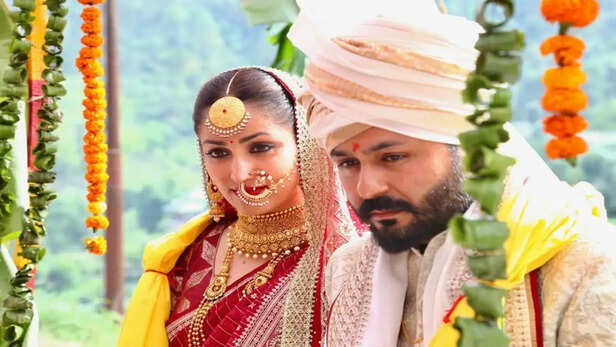
In many ways, Millennials’ rejection of "happily ever after" represents a cultural evolution. No longer bound by the traditional narratives of marriage and love, they are crafting a new blueprint, one that values growth, authenticity, and partnership over perfection. This shift in perspective is not just about abandoning old ideals; it's about reshaping marriage into something that better suits the needs and realities of modern life.
The death of "happily ever after" does not signal the end of love or commitment. Rather, it marks the beginning of a new chapter in the way people approach relationships. Millennials are carving out a path where marriage is defined by mutual respect, emotional fulfillment, and adaptability, a marriage not of fairy tales, but of real, evolving partnerships that reflect who they are, who they want to become, and how they can grow together. The future of marriage, it seems, is far less about the pursuit of an idealized ending and more about creating a meaningful, ever-evolving journey of love and connection.
Challenging Traditional Norms

P V Sindhu and Venkata Datta Sai.
The narrative of "happily ever after" has been a central theme in cultural depictions of love and marriage. For generations, this ideal created a fixed blueprint for what love and relationships should look like - romantic, enduring, and unwavering. For Millennials, however, the promise of a fairy tale ending feels outdated, unrealistic, and even limiting. Many Millennials are rethinking long-held norms about marriage, such as the belief that love is a one-size-fits-all, permanent institution that should never change.
A key reason Millennials are moving away from the "happily ever after" ideal is the evolving view of personal growth and individualism. For this generation, life is about continual self-discovery, change, and adaptation. Millennials place a high value on developing their own identities, careers, and aspirations. Marriage, therefore, is not viewed as an endpoint but as a partnership that should allow space for both individuals to flourish and grow.
Moreover, Millennials have witnessed the divorce rates of previous generations and are often wary of entering into a marriage that feels burdening. The rise in divorces has created a generation that is more cautious about making long-term commitments, leading them to question if "forever" is even realistic. Millennials are more likely to believe that marriages can evolve, and they are looking for relationships that are flexible and adaptable to the complexities of modern life.
Redefining the Purpose of Marriage

Vicky Kaushal and Katrina Kaif.
Historically, marriage was primarily about societal expectations, binding families, ensuring inheritance, and producing children. In recent decades, however, the purpose of marriage has shifted toward emotional fulfillment and personal companionship. Millennials continue this evolution by emphasizing mutual respect, partnership, and emotional connection above traditional roles or expectations.
For Millennials, marriage is no longer a "destination" but a journey that reflects the nuances of their individual lives. In place of the fairy tale ending, Millennials are seeking relationships that bring out the best in each person, not necessarily the perfect union. They are less likely to see marriage as an idealized institution that brings eternal happiness; instead, they recognize the complexities of relationships and approach them with an open mind and a more realistic outlook.
The Rise of Non-Traditional Relationships

Sonakshi Sinha and Zaheer Iqbal.
Alongside the changing views on marriage, Millennials are also exploring non-traditional forms of relationships. These include cohabitation without marriage, open marriages, polyamory, and other unconventional arrangements. The idea of "till death do us part" no longer seems like the only valid model for love and connection. Millennials tend to embrace diverse relationship structures based on individual preferences and needs, rejecting the notion that marriage is the ultimate marker of success.
In addition to this, Millennials are increasingly advocating for equality in relationships. Traditional gender roles in marriage are being replaced with shared responsibilities and mutual respect. Women, in particular, have greater autonomy, career opportunities, and financial independence than previous generations, which has contributed to the rethinking of traditional marriage dynamics.
Furthermore, Millennial marriages are often viewed less as a "contract" and more as a dynamic partnership where communication, flexibility, and compromise are central. The goal isn't to fulfill societal expectations but to create a partnership that works for both individuals, irrespective of outside pressures or norms.
Fear of Complacency and Stagnation

Pulkit Samrat and Kriti Kharbanda.
In the past, many couples were content to remain in marriages out of obligation or familiarity, even if the relationship no longer satisfied them emotionally or intellectually. Millennials, however, are determined to avoid the trap of staying in relationships that feel stagnant or unfulfilling.
This mindset is leading to an increasing acceptance of divorce or separation as a natural outcome when relationships no longer serve both individuals’ growth and happiness. Far from fearing divorce, Millennials are more likely to see it as an opportunity for reinvention and healing, rather than a failure or moral defeat.
Marriage and the Changing View of Commitment

Neeraj Chopra and Himani Mor.
While Millennials may be moving away from the traditional model of marriage, this does not mean they are averse to commitment. On the contrary, Millennials value meaningful and committed relationships but are less willing to conform to outdated standards. Rather than placing the emphasis on a lifetime "contract," they view commitment as a living, breathing element that adapts as life circumstances change.
The growth of digital platforms for dating and relationships has also played a significant role in this shift. The constant access to potential partners, the ability to explore various types of relationships, and the willingness to challenge conventions have influenced how Millennials perceive the long-term commitment of marriage. Relationships no longer require the rigid structure they once did, and Millennials are embracing this newfound flexibility.
A New Era of Marriage

Yami Gautam and Aditya Dhar.
In many ways, Millennials’ rejection of "happily ever after" represents a cultural evolution. No longer bound by the traditional narratives of marriage and love, they are crafting a new blueprint, one that values growth, authenticity, and partnership over perfection. This shift in perspective is not just about abandoning old ideals; it's about reshaping marriage into something that better suits the needs and realities of modern life.
The death of "happily ever after" does not signal the end of love or commitment. Rather, it marks the beginning of a new chapter in the way people approach relationships. Millennials are carving out a path where marriage is defined by mutual respect, emotional fulfillment, and adaptability, a marriage not of fairy tales, but of real, evolving partnerships that reflect who they are, who they want to become, and how they can grow together. The future of marriage, it seems, is far less about the pursuit of an idealized ending and more about creating a meaningful, ever-evolving journey of love and connection.
